How to water roses the right way – and the watering mistakes to avoid that can damage your plants
Professional gardeners reveal the best approach to watering roses to ensure that your prized plants thrive
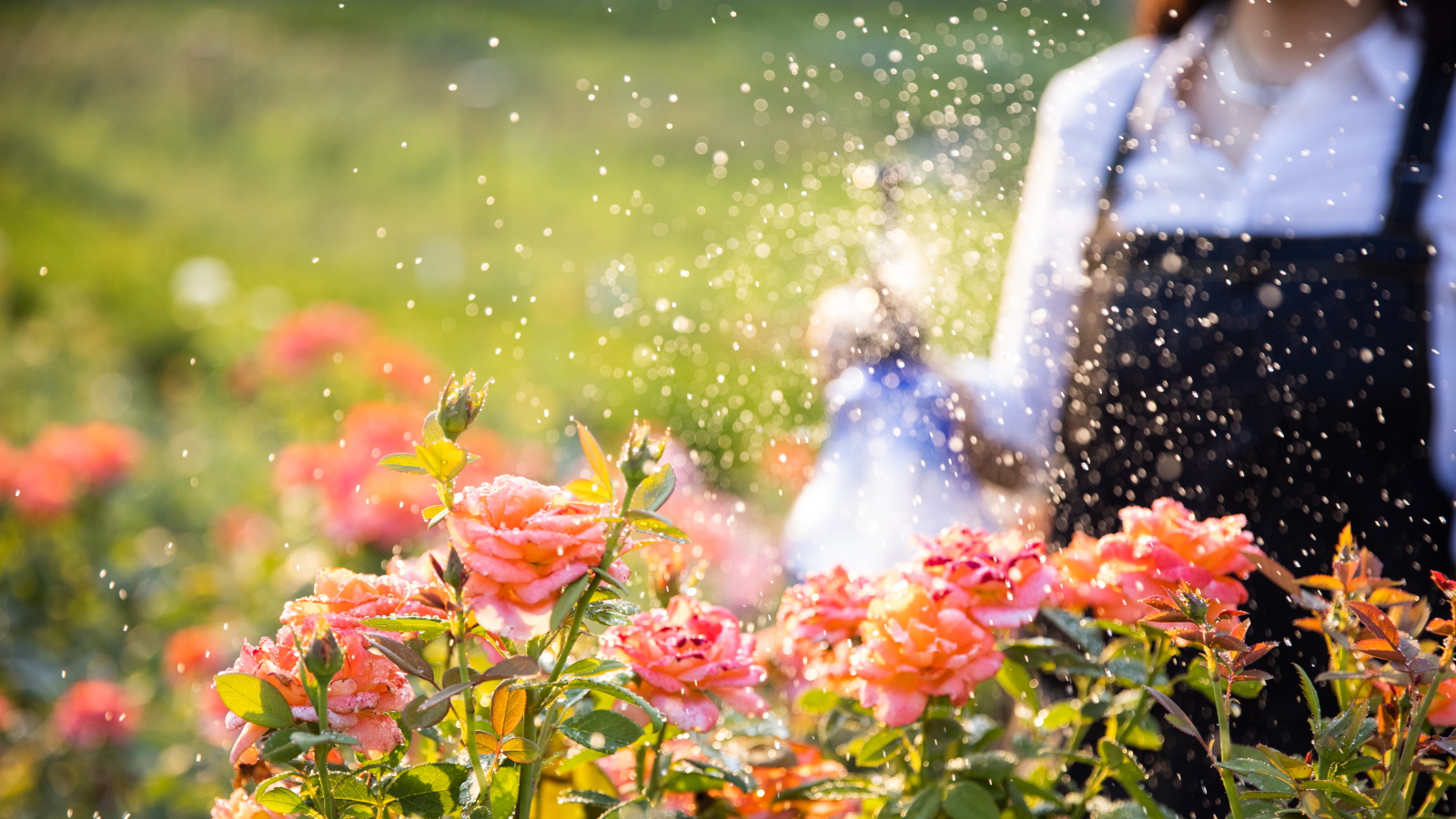

Roses are renowned for their fragrance, color and versatility in the garden. Whether you have a spectacular climbing rose, a large shrub rose or perhaps a miniature rose in a small pot, it is impossible not to fall in love with these romantic and timeless flowers.
When considering the best approach to rose care and growing, it is important to know how to water roses correctly. Understanding how to water plants is crucial for maintaining healthy and happy plants, and roses are no different. For long-lasting, prolific blooms, watering at the right time and in the right way is essential.
Here, gardening and rose experts reveal how best to water your rose plants in the backyard to ensure that your fragrant roses thrive this spring and summer.
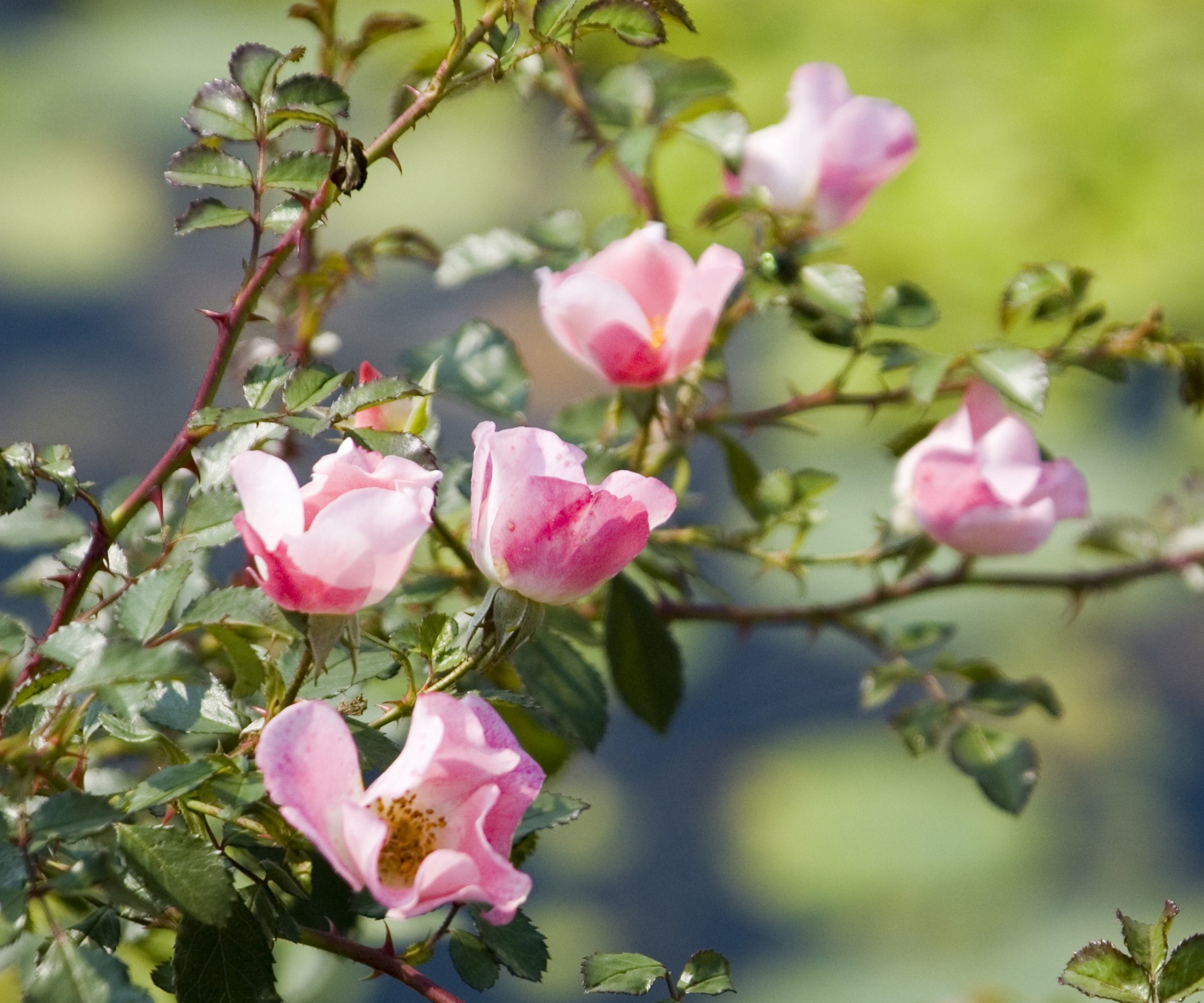
How to water roses correctly
If you are looking for impactful plants to add to your borders, roses are surely the plant to grow. There are many different types of roses and rose garden ideas to consider, but when planting any species or variety, knowing how to maintain your plants is important. Watering is a crucial part of rose care, and maintaining an effective watering schedule will help your roses thrive.
When to water your roses
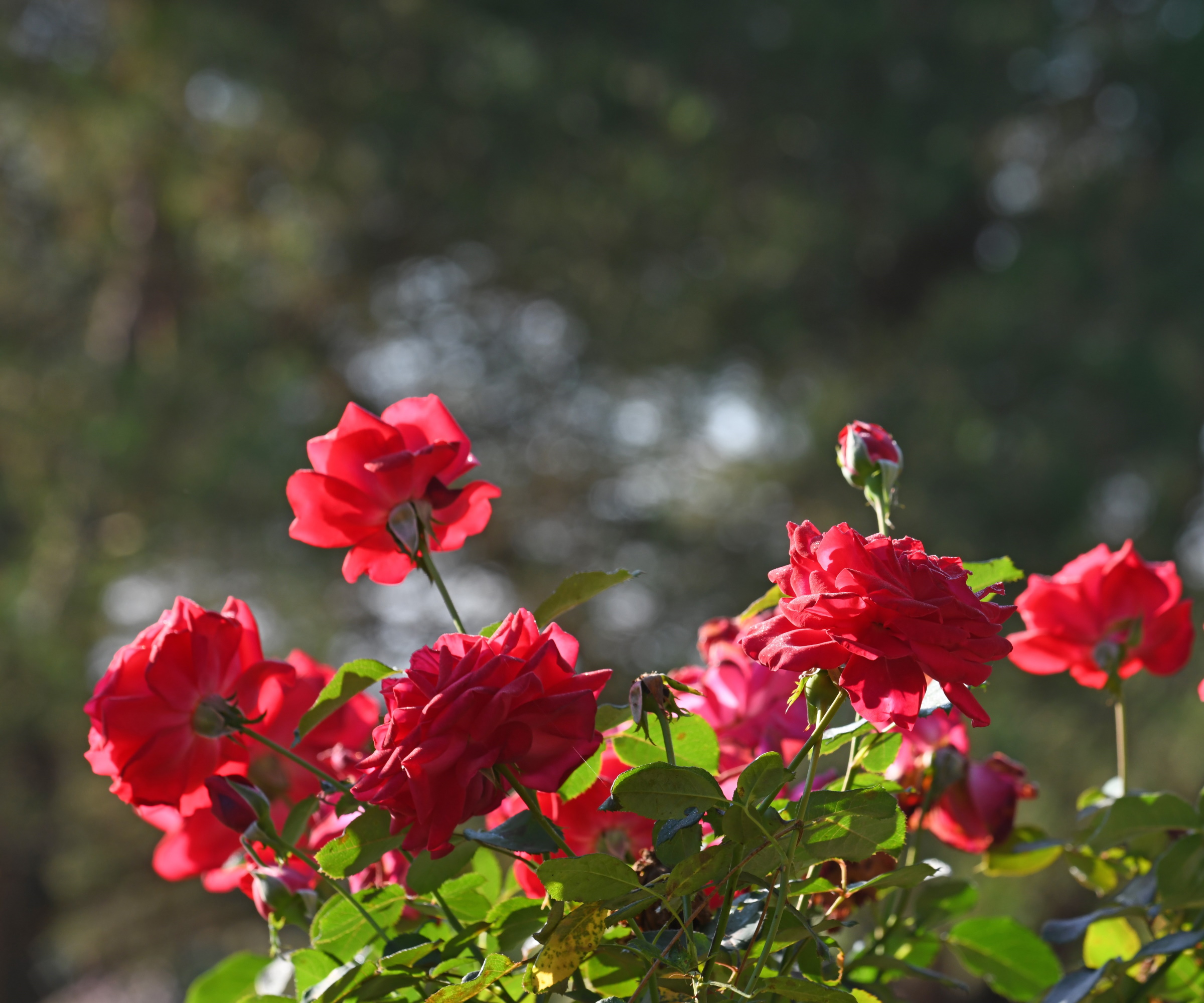
Knowing when to water plants might seem inconsequential, but watering at the right time can help to improve plant health and flowering, and reduce water wastage.
'Watering is vital for roses to thrive,' says plant expert, Katie Sunderlage. 'The best time of day to water your roses is in the morning. Doing so in the early hours will ensure there is enough time for your plant to absorb moisture from the soil to get through long and hot summer days.'
'Newly planted roses need to be watered more than established roses, particularly if they are planted in late spring or early summer,' Katie says.
'I would recommend watering newly planted roses every 2 to 3 days depending on the weather,' Katie adds. 'Once roses are established, they can be watered once or twice a week, as necessary depending on the temperature.'
As with any gardening job, it is best to stick to a schedule so you do not forget what plants need watering on specific days of the week. For example, for established roses, I would suggest watering them deeply on the same day each week. For example, watering each Monday in the early morning during the spring and summer months. While it might seem unnecessary to be so organized with watering, it can help to maintain a consistent approach.

Operations Manager at Holland Group, managing the customer service department and purchasing. Katie has been in the green industry since 2005 in the Greater Milwaukee area, earning her degree in Horticulture in 2008. She has been able to share her love for plants working in multiple garden centers, in sales positions and most recently in an online retail platform at Holland Group.
How to water roses
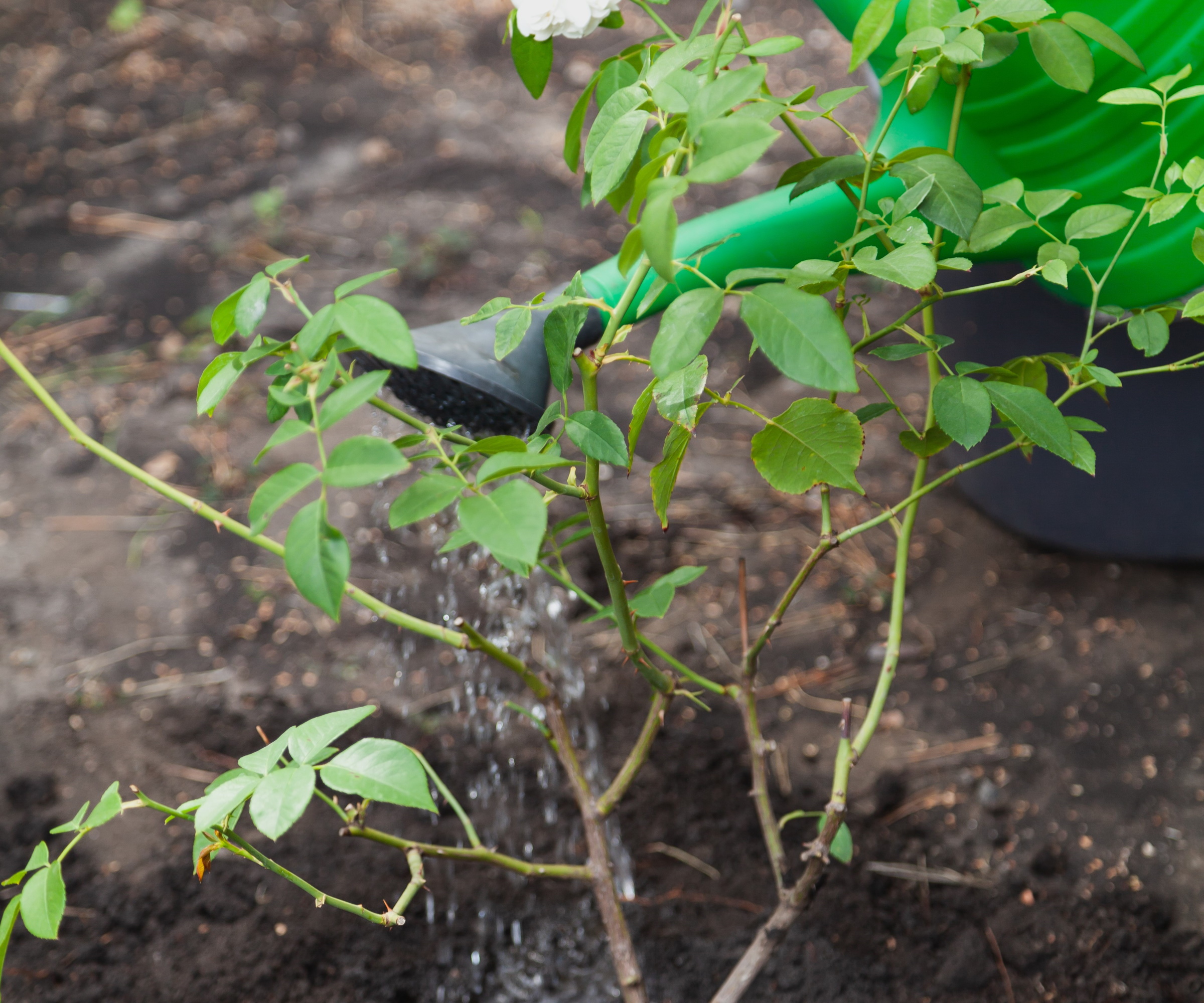
'It is important to water roses consistently during the growing season,' says Robin Jennings, rose expert and Manager of Strategic Partnerships at Heirloom Roses. Indeed, maintaining an effective watering schedule will ensure that your roses do not dry out.
Watering roses is crucial for your plants to thrive, but 'roses hate having wet feet, so make sure they are in well-draining soil,' Robin adds. 'If you have clay soil, for example, you can amend the soil to improve it and give your rose the best chance.'
Soil improvers can help to enhance the quality of your soil, as Robin says, so using something like this rose soil from Walmart is a good idea.
Robin recommends watering newly planted roses 3 times a week 'totaling about 3 to 5 gallons of water per week.'
'It is best to water around the base of the plant, not on the foliage, which will help to prevent fungal disease and other rose pests,' Robin continues. 'I like to water in a circle around the base of the rose so it will stretch its roots out to reach for the water and have a large root system.'
'For established plants, it is best to water twice a week totaling 3 to 5 gallons of water depending on the temperature,' Robin says. 'If water is puddling around the rose and not soaking in right away, it's too much water.' If this occurs, hold off watering for a few days while the ground is saturated.

Robin Jennings, a city girl from Canada, discovered her passion for gardening in the farmland of Oregon's Willamette Valley. Robin works for Heirloom Roses, where she collaborates with hybridizers to promote the beauty of own-root roses and preserve older varieties.
Signs of over-watering or under-watering your roses
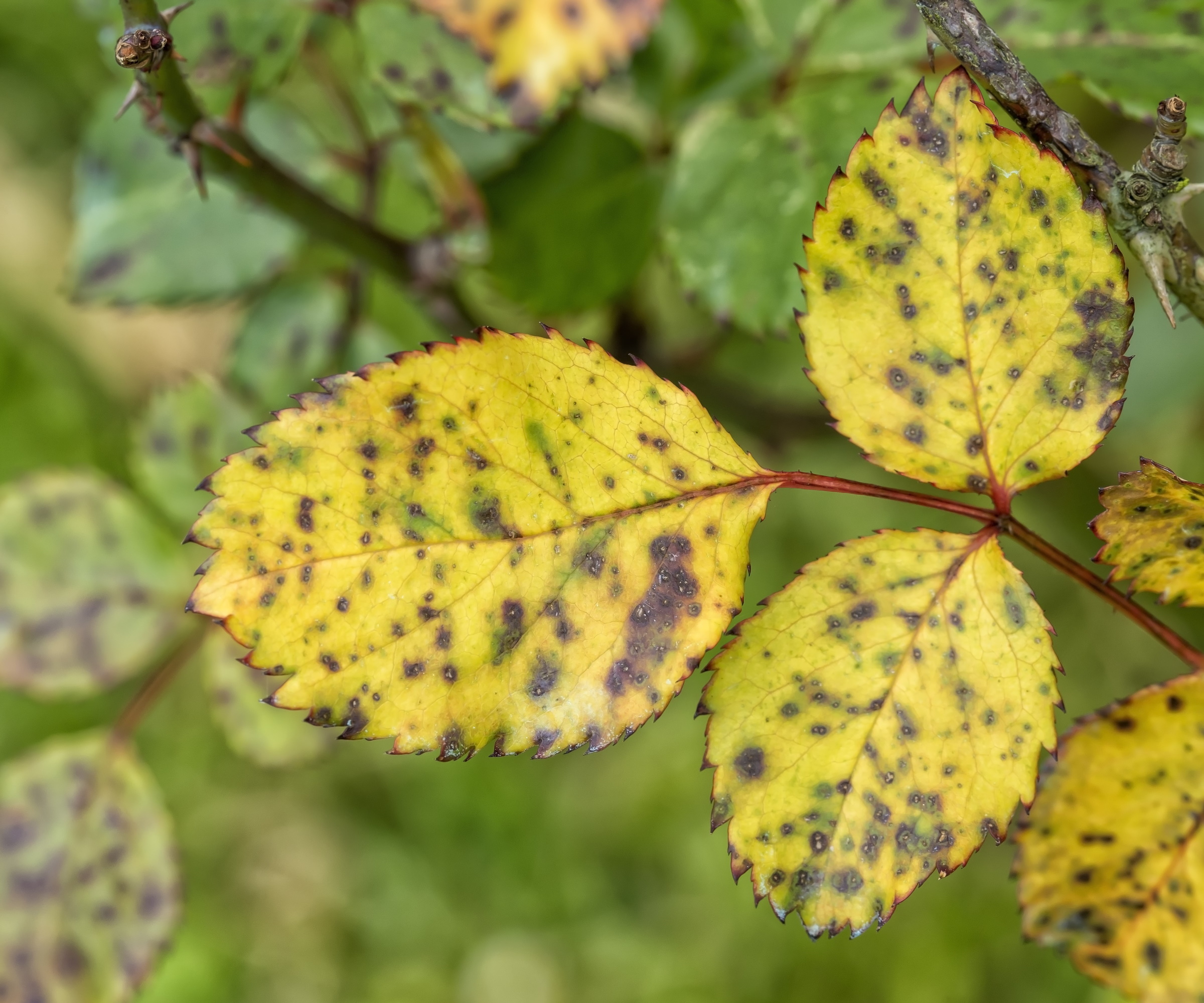
It is important when watering your roses to only water the soil. As Robin says, droplets on the leaves can cause burn marks from the sun, and this can create further plant health concerns for your roses.
'A rose will let you know when it has had too much to drink through yellowing and drooping leaves,' Robin says. As can be seen in the image above, yellowing foliage is easy to spot and is a sign that your rose is being over-watered. See our guide on why are my rose leaves turning yellow for more information.
'If it rains, water your rose a bit less, and if it's hot, water a bit more,' Robin says. 'Each garden and climate is different so observe your roses, and learn what works best for your plants, your US hardiness zone, and the local climate.'
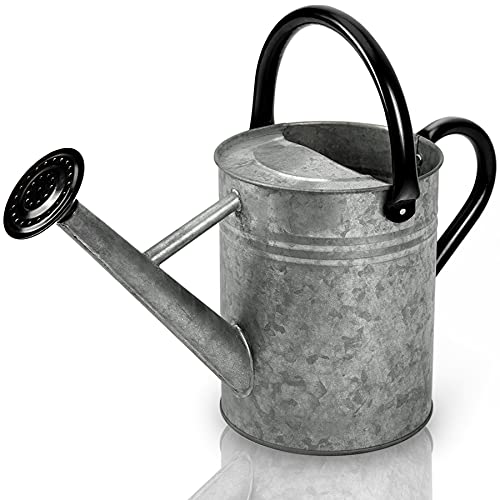
This Cesun watering can can hold approximately 1 Gallon/4L of water, and is a practical and attractive addition to any yard. This can is the ideal size for your outdoor and indoor plants.
FAQs
When is the best time to water roses that are grown in pots?
As with roses that are grown in the ground, it is best to water roses that are growing in pots in the early morning. This is recommended so that your plants can absorb the water before the heat of the day. Never water your pot plants during the hottest part of the day, as most of this water will evaporate due to high temperatures.
Sticking to a watering schedule can help your roses thrive. Watering your roses consistently and carefully will ensure that your roses reward you with plenty of flowers.
For more rose-growing advice, consider our guide on how to grow ground cover roses for low-growing varieties. Alternatively, see our adivce on how to move a rose, providing you with all the information you need to lift and move rose plants successfully, or for shady yards, see our article on can roses grow in the shade.
Sign up to the Homes & Gardens newsletter
Design expertise in your inbox – from inspiring decorating ideas and beautiful celebrity homes to practical gardening advice and shopping round-ups.

Thomas is a Content Editor within the Gardens Team at Homes and Gardens. He has worked as a professional gardener for both public spaces and private estates, specializing in productive gardening, growing food and flowers. Trained in Horticulture at the Garden Museum, he has written on gardening and garden history for various publications, including The English Garden, Gardens Illustrated, Hortus, The London Gardener and Bloom. He has co-authored a Lonely Planet travel book, The Tree Atlas, due out in 2024.
-
 Kris Jenner's favorite air fryer, the Ninja Crispi, is the perfect small kitchen solution – it deserves a place on the most compact of countertops
Kris Jenner's favorite air fryer, the Ninja Crispi, is the perfect small kitchen solution – it deserves a place on the most compact of countertopsKris approves of this compact yet powerful air fryer, and so do our own kitchen appliance experts, praising it for its multifunctionality
By Hannah Ziegler Published
-
 Ina Garten's storage pantry is an insightful window into all of the best cookware used by the chef – and it's easy to recreate on your kitchen shelves from $48
Ina Garten's storage pantry is an insightful window into all of the best cookware used by the chef – and it's easy to recreate on your kitchen shelves from $48The beautiful dishware in The Barefoot Contessa's Hamptons pantry showcases the tools she uses most often to cook – this is exactly how you replicate it
By Sophie Edwards Published